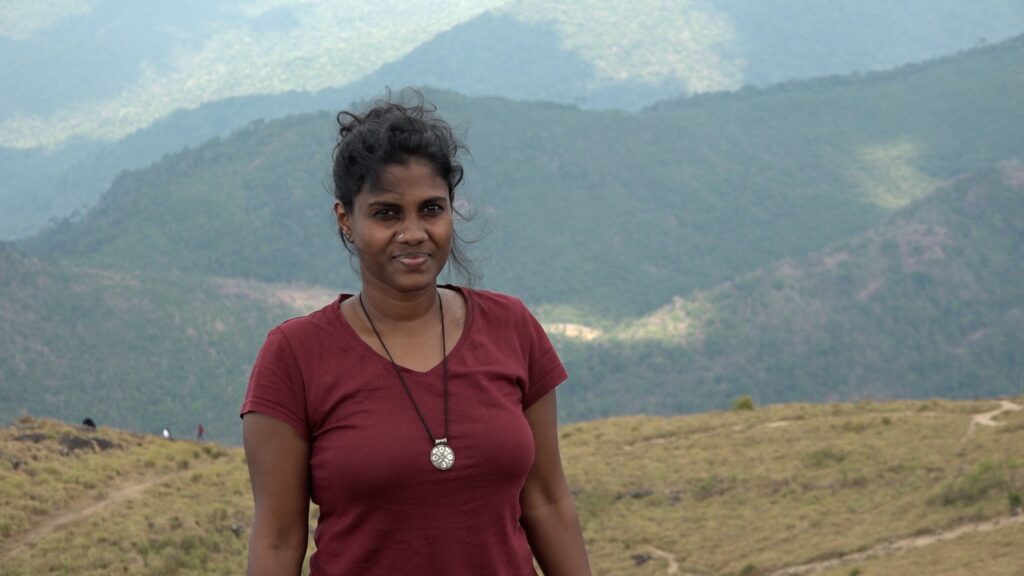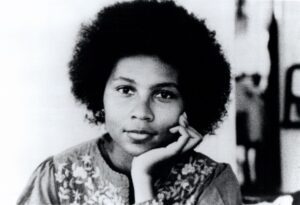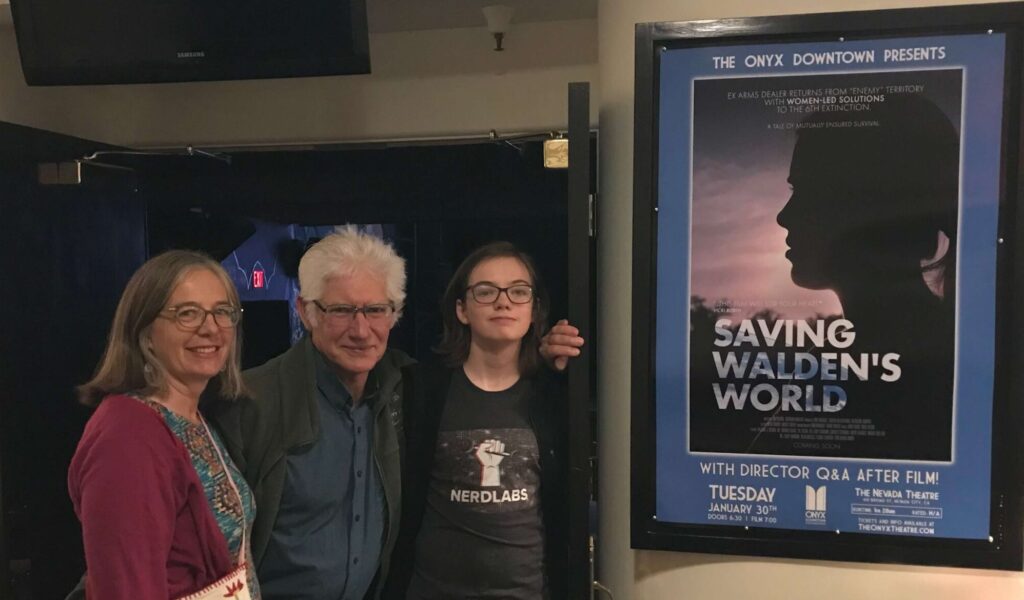Feminism is for Everybody: Why I made Saving Walden’s World
Monday March 18, 2024
Saving Walden’s World Blog, By Jim Merkel
March in Maine is mud season. Time to tap maple trees, plant seeds in trays and start thinking of all the homestead work to do once the soil warms. And, living in a cold climate affords one a winter of introspection. With March here, I’m wondering if I’ve figured anything out this winter, especially, having turned 67 last month? All I can say is, I’m working on it.
I recently watched both “Barbie” and “Miss Americana” with my partner Susan. She is someone I can count on to straighten me out when I start thinking I actually understand sexism, feminism, and that omnipresent effect of societal oppression. After “Miss Americana,” Susan and I did the dishes, humming Taylor Swift’s “Only the Young,”
“You did all that you could do,
The game was rigged, the ref got tricked,
The wrong ones think they’re right,
You were outnumbered, this time,
But only the young… only the young, only the young, only the young… can run.”

Taylor Swift’s budding social content and persona teared us up, sex appeal and all. Still, in both films, a women’s success was in some way aimed to please men, who, rarely satiate. In “Barbie” the creator, Ruth Handler, envisioned female independence and empowerment juxtaposed to motherhood and housework, to inspire girls to their dreams and callings. Boardrooms of men with profit motives morphed this icon into body perfection — slim waist, big breasts. Gloria Steinem said “Barbie was everything we didn’t want to be… everything the feminist movement was trying to escape.”
The film has Barbie’s attempt to shape the world to inspire young girls to creativity subverted by a jealous Ken. The animated world according to Ken was so revoltingly American status quo of toxic masculinity that even the men watching would be ashamed of the ugly world they created. I rooted for Barbie to neuter Ken. Even after 30 years of considering myself a feminist, Ken’s world and our current world are painful encounters. A similar pain was in Taylor Swift’s voice when she said “I cannot support Marsha Blackburn” in Tennessee as Senator. “Her voting record in Congress appalls and terrifies me.” The day-by-day oppression and violence against women is chilling, with wars, ecocide and mass shootings, mostly attributed to men.
The Politics of Stardom — Young Voter Turnout (NPR)
“Miss Americana” was made in 2020 as Taylor Swift turned 30, an age of questioning the path we’re on. For me the film’s climax was the realization that it was impossible for her to not use her stardom to support women’s rights. Her youthful incarnation of being liked, being good, being a star, fueled a waistline disorder. I found her vulnerability touching. The film tracks her maturation toward a calling higher than appearances. Case in point, Swift endorsed several candidates in Tennessee who support women’s rights and reproductive freedom. In 2022, when Roe V. Wade was overturned, Swift wrote “I’m absolutely terrified that this is where we are – that after so many decades of people fighting for women’s rights to their own bodies, today’s decision has stripped us of that.”
Is Feminism Sexy?
Still, Barbie and Taylor Swift bridle fashion, sex appeal, appearance as bread and butter in a billion dollar economy each, on stage, in the theater. Looking for more substance on feminism on International Women’s Day, Women’s History Month, I looked up the life of the late writer bell hooks. Her title “Feminism is for Everybody” caught my attention. I’d not heard of bell hooks or read any of her some 40 books, but once I started to dig in, wow. Hooks writes, “Feminism is a movement to end sexism, sexist exploitation, and oppression.”
Having worked in autobody shops, factories and later in the military industrial complex, I realize that for much of my adult life I’ve accepted “toxic masculinity” as normal. I left that world behind 30 years ago, and yet, a 2024 Ipsos global study found that one in three men believe feminism does more harm than good. How can that be? Could a steady diet of ‘poor white male is losing dominance’ be convincing to some? Hooks writes, “Their misunderstanding of feminist politics reflects the reality that most folks learn about feminism from patriarchal mass media.”
“Feminists are made, not born.” — bell hooks
This simple line sums the last 7 years of making this film “Saving Walden’s World.” For a white guy, what this has meant is continually, imagining what it would feel like to be a woman in today’s society. Having five sisters, I can imagine all these wonderful and powerful things about my sisters, about women. But, I’m the kind of person that also imagines all the horrible things that are happening real-time, anywhere, somewhere, to women. This could be my sister. This could be your daughter.
Over half American women have experienced sexual violence. One in four women experience intimate partner physical violence. Worldwide, every minute, 22 girls are married as children. Seven in ten of the 700,000 human trafficking victims are women and girls. Women’s annual unpaid labor contributes $10.9 trillion to the global economy compared to the tech sector’s $5.2 trillion (2020). So how does one person become a feminist and how does another believe masculinity is under threat?
These statistics live within me and have powered the making of “Saving Walden’s World.” I wanted to show societies that work for women, while not pretending the dystopias aren’t real. And that is why we went to Cuba, Kerala and Slovenia, where women have had 60 years of access to higher education, regardless of their social class or caste. Where women have access to contraception, safe abortion, sex education, child care, maternity leave, healthcare, housing. All the things necessary to exit poverty, all the things uber-wealthy America refuses to do.
And, so you know, now that our film is released, any ideas for partnerships to get our film out into the world are wanted! Click here to find out how to become involved. We want to understand the dividends from ensuring women are valued. The dream is, that by seeing these potent, yet imperfect societies, viewers might imagine a better world is possible. I would like to end this blog with a longer quote by bell hooks, that sums up a personal hope for the eventual impact of “Saving Walden’s World:”

“Imagine living in a world where there is no domination, where females and males are not alike or even always equal, but where a vision of mutuality is the ethos shaping our interaction. Imagine living in a world where we can all be who we are, a world of peace and possibility. Feminist revolution alone will not create such a world; we need to end racism, class elitism, imperialism.
But it will make it possible for us to be fully self-actualized females and males able to create beloved community, to live together, realizing our dreams of freedom and justice, living the truth that we are all “created equal.” Come closer. See how feminism can touch and change your life and all our lives. Come closer and know first-hand what feminist movement is all about. Come closer and you will see: feminism is for everybody.”
— bell hooks
